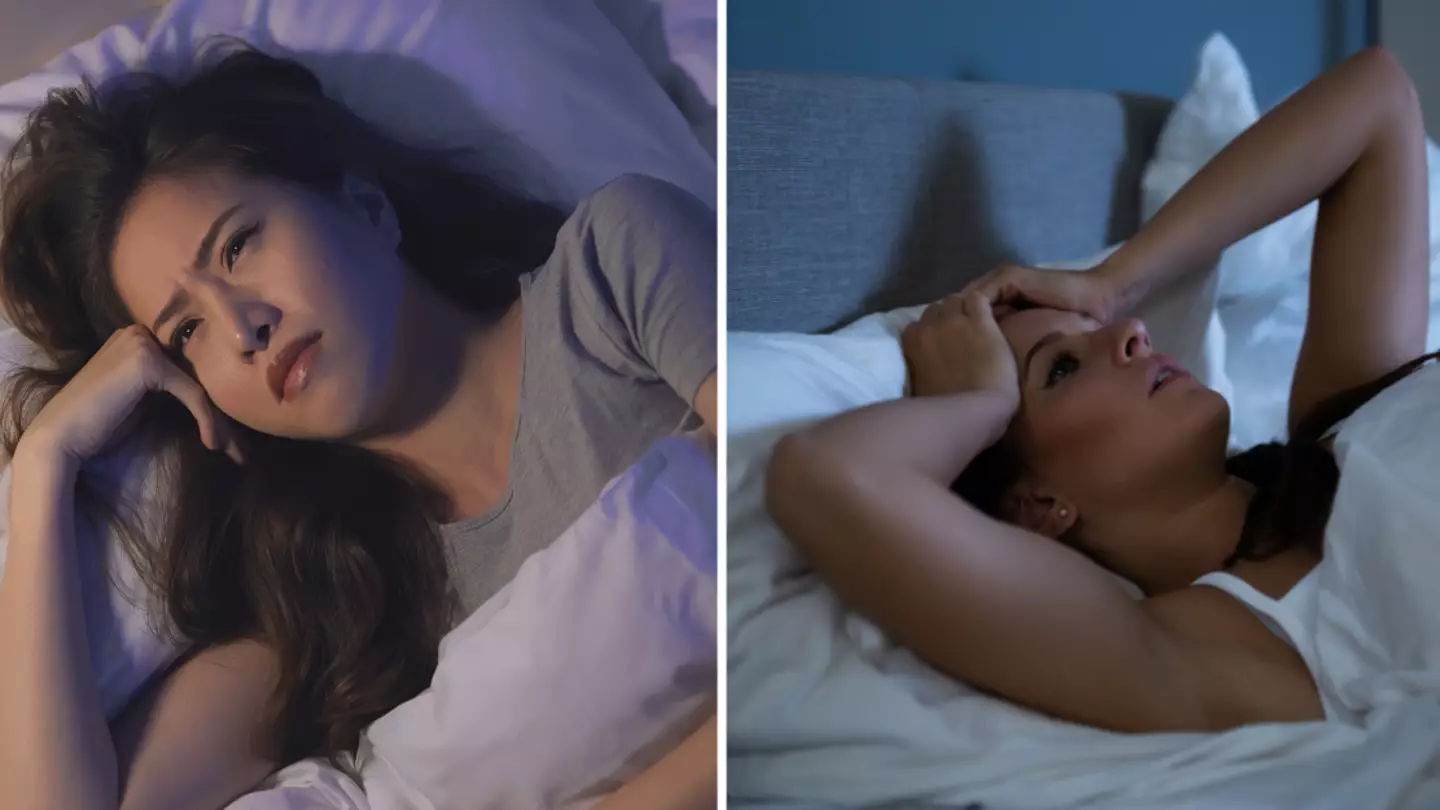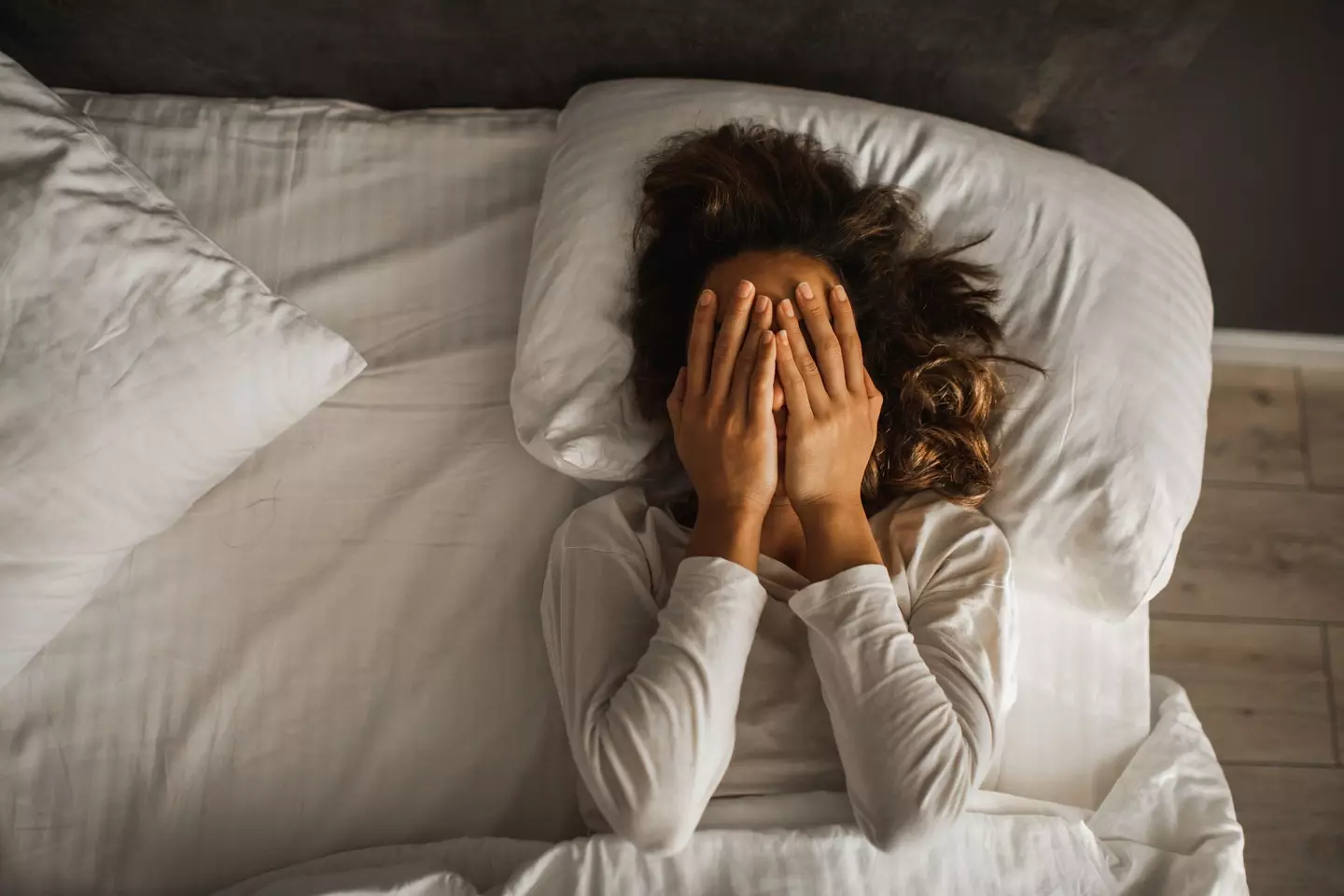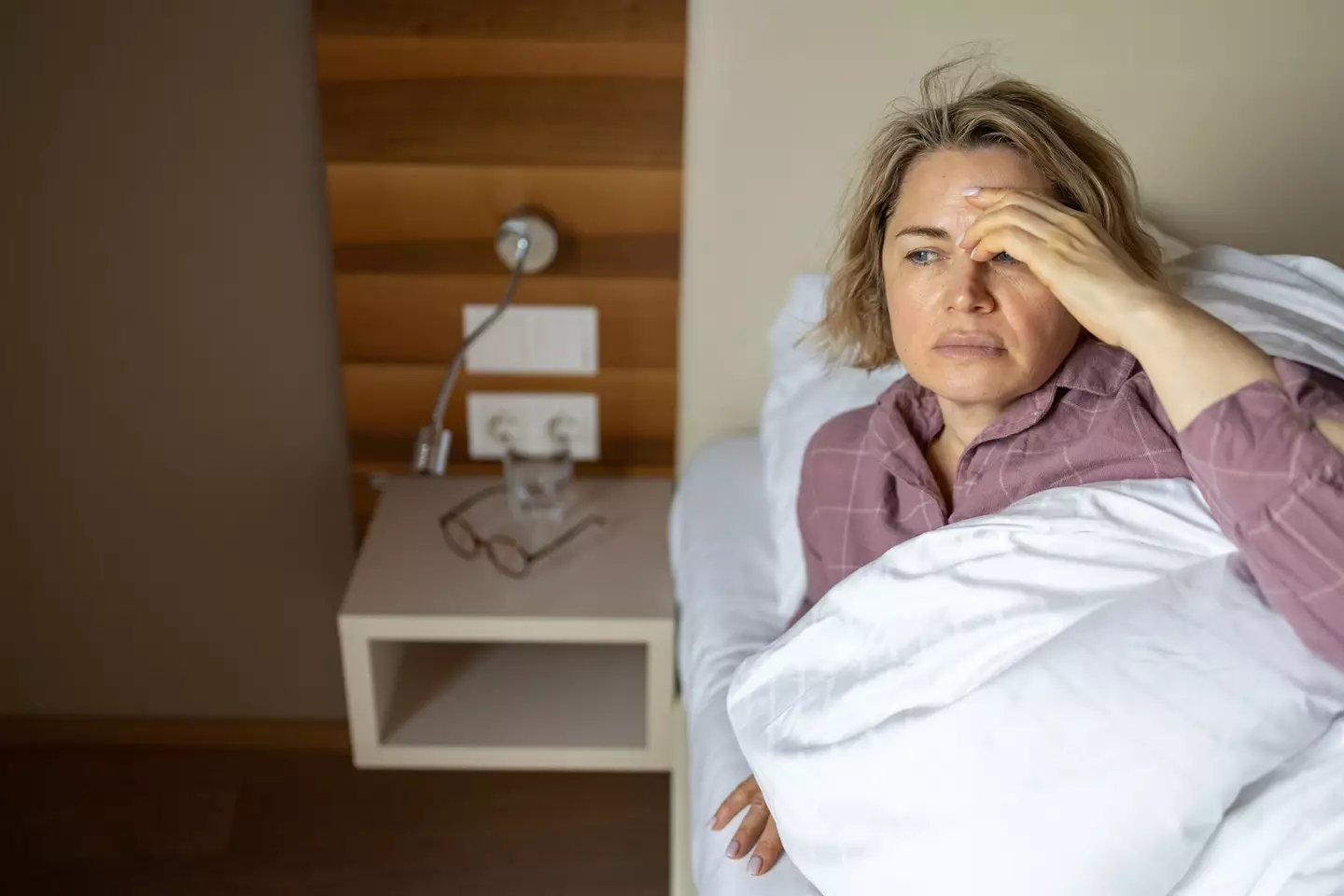
Wondering why you keep waking up at the same time each night? It could be down to nature.
According to furniture store Dunelm, millions of British women are wide awake at 3.29am.
Now, that’s a pain in the ass for a number of reasons.
One, you’re now going to have broken sleep, which means you’re going to be tired when you eventually have to crawl out of bed and go to work.
Advert
Two, if you have kids, you’re not even going to get a calm day ahead while you’re running on fumes.
Three, if you can’t go back to sleep, you’ll become a goblin, and nobody wants to see that.
However, there’s a perfectly logical reason as to why your body is fooling you into waking up at an ungodly hour, and there’s ways to help it.

Around 13 million people are perimenopausal or menopausal in the UK, and unfortunately this comes with a big dose of insomnia.
The Insomnia Clinic even states that ‘60 percent of women’ have insomnia as their most common symptom.
That’s a large number of women who just can’t sleep through the night.
According to Gloucestershire Live, over half of women reported in a study have to fight their way back to sleep, 30 percent will read a book or scroll on their phones and 20 percent watch TV.
17 percent instead choose to stare at the clock until sweet sleep comes to save them.
The thing about menopausal insomnia is that it can affect your mental wellbeing.
Cardiff University found that those who are at a heightened risk of developing a mental health issue due to menopause have no prior history of suffering with anything before.
The Dunelm study also found that menopausal insomnia has impacted 69 percent of women, with 60 percent of those unaware of how to help.
Half of the participants felt unsupported during their insomnia, while 25 percent went to their doctor for help.
According to the NHS: “Menopause is when your periods stop due to lower hormone levels. It usually affects women between the ages of 45 and 55, but it can happen earlier.”
It can also happen naturally, or because you have had surgery to remove the ovaries (oophorectomy) or the uterus (hysterectomy).

It could be triggered by cancer treatments like chemotherapy, or a genetic reason.
Sometimes, there’s no reason at all.
For those experiencing the big M, symptoms such as anxiety, mood swings, brain fog, hot flashes, and irregular periods can occur and it can lead to a very unhappy time in your life if your symptoms are severe.
Around five percent of the population can experience early menopause, and one percent go on to have premature menopause when they’re under 40.
Even rarer, 0.1 percent of women under 30 can begin the stages too.
Premature menopause happens when the ovaries call it quits too early and send messages to stop the eggs from dropping each month.
Some people find they cope well with their symptoms, while others are less fortunate.
If you are struggling with your menopause symptoms, don’t be afraid to talk to your doctor for help.
Topics: Menopause, Health, NHS, Sleep, Mental Health
